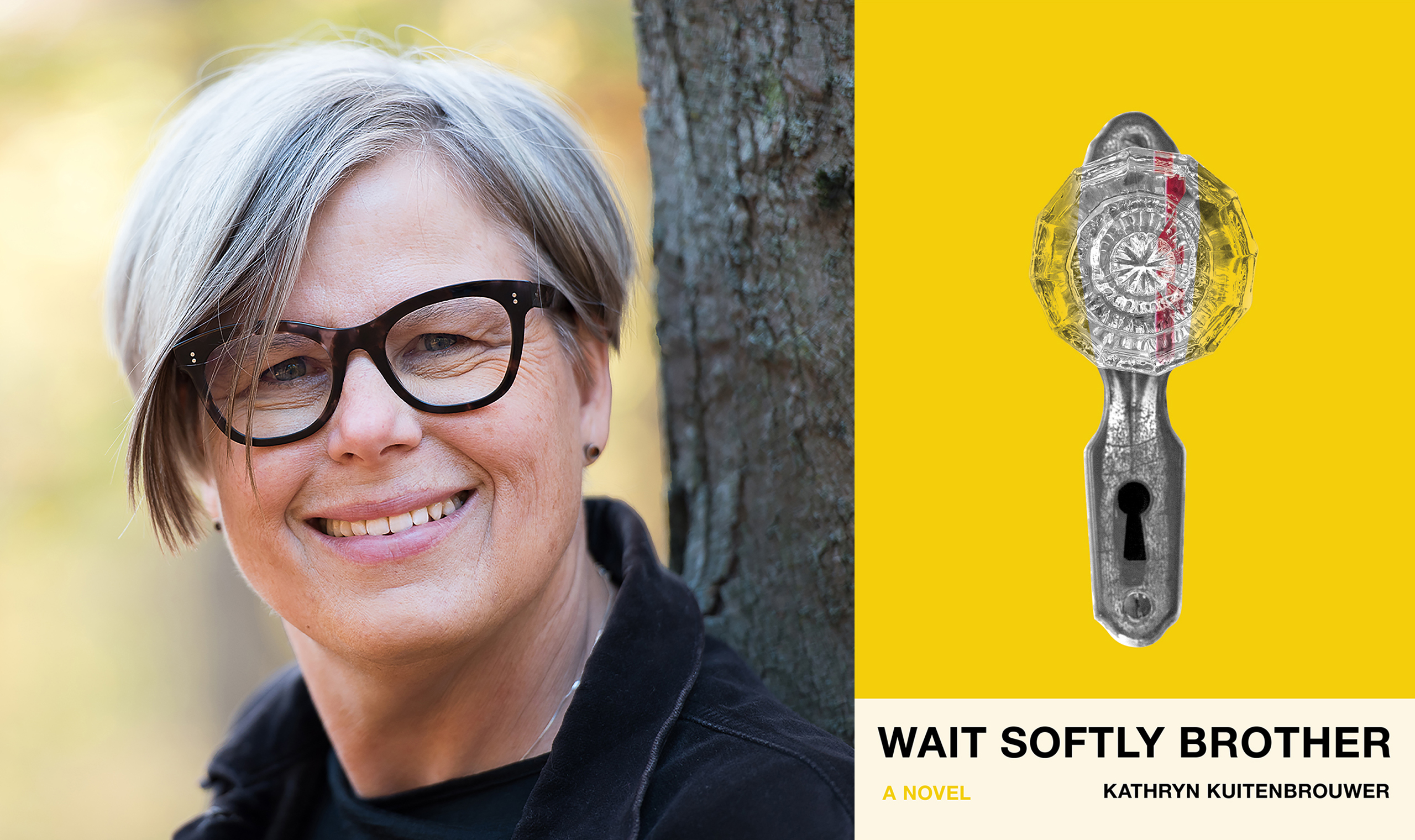Scotiabank Giller Prize Spotlight: Kathryn Kuitenbrouwer
September 13, 2023
Kathryn Kuitenbrouwer’s novel Wait Softly Brother has been longlisted for the 2023 Scotiabank Giller Prize.
Kathryn Kuitenbrouwer is the bestselling author of the novels All the Broken Things, Perfecting and The Nettle Spinner. She is also the author of the story collection Way Up. Her work has appeared in Granta, The Walrus, Maclean’s, The Lifted Brow, Significant Objects, Storyville and others. Kathryn teaches literature and creative writing at the University of Toronto.
What inspired you to write Wait Softly Brother?
Writing, for me, is a process. I write in order to see what I am writing about. In the case of Wait Softly Brother, the American Civil War sections came first. They came fast, too. I was a bit taken aback by the violence of them and even that they were emerging out of my hands since I knew virtually nothing about the era and because I have never been much interested in writing historical fiction. Because I am interested in the weird workings of my own brain, I began to wonder why I was writing these strange scenes and where they were going to lead. I began to decode them as you might a dream and through that process to see how the idea of civil war correlated to my experience of marital separation and divorce, its own internal battle. It was then that the frame story of a fictional “Kathryn” leaving her family to uncover her true story and the facts of her childhood loss —a stillborn brother — came into focus for me. I was inspired by my own repressed trauma in that regard, the kind of more-or-less mundane trauma of early loss and how it can seep out into larger problems if left unaddressed.
What do you hope readers take away from Wait Softly Brother?
I hope that readers enjoy the slow piecing together of the puzzle as Kathryn comes to understand who she is and why. I also hope readers come to understand the way in which the human world is narrated, at least to some extent, and that the narration is subject to our adherence to it. In other words, we can change it, even if that change is incremental. Storytelling is important — crucial even — because it reminds us that it’s all just a story subject to editorial. What story can we tell that is healthy for the planet and for ourselves?
Where is your favourite place to write? What is your process?
I write anywhere I can be sure I won’t be interrupted. I write in bed, in my studio, in cafés. I usually have an image or a scene that’s come in my mind the night before. When I write the next day, I simply open my notebook (yes, longhand) and begin. I let the story come. I don’t get too caught up in the results. I just write and see what happens. What usually happens is the story just keeps coming. Sometimes it is difficult but often not. A first draft is always exploration. The subsequent drafts, of which there are many, are where the hard part of writing starts for me. I ask myself where the story is and how to build it into a satisfying arc. I work to put all the pieces in the proper place. This can take years. In the case of Wait Softly Brother, it took almost ten years of fiddling around and thinking for me to be satisfied that it was complete.
Is there an activity you do to help inspire writing?
Falling asleep is the best time for me to think of my story. Ideas seem to float up as I drift off. These can seem urgent and I do my best to remember them for the next writing session. I use these ideas or images as prompts. This can feel like magic. Being a passenger in a car with a driver who is quiet is also a generative space for me. I like to think while I am moving.
What’s a book you recommend others read and why?
Corregidora (1975) by Gayl Jones is one of the most structurally perfect novels I have ever read. It is a challenging novel dealing with epigenetic trauma, domestic abuse and the legacy of slavery and it is also a poetic tour de force using the sonic melancholia of the blues and the vibrancy of orality to infuse the protagonist, Ursa, with an indelible humanity.

